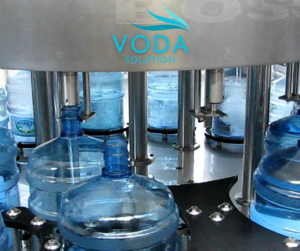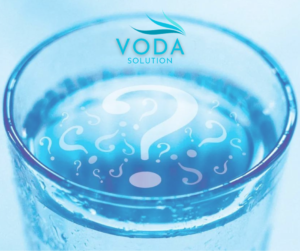SALT WATER
Does low-salt water cause health damage?
The belief that water is low in salts can cause damage to health.
However, it is the result of an honest search to answer the question: can water low in salts affect health?
We have based ourselves on the possibility that we all have to follow reasonable, analytical thinking that considers the advances in knowledge and the evidence to which we have access.
Ultimately, this is scientific thinking.
The search took us many years due to the diversity of positions on the subject.
What distinguishes dissolved minerals in drinking water from dissolved salts?
Both terms are synonyms. These are inorganic compounds. Most of them dissociate when dissolved in water.
Those that dissociate are called electrolytes.
Demineralizing water is the same as reducing the concentration of the salts dissolved in it.
Why do the majority of people who pursue professions in chemistry believe that drinking demineralized water is bad for you?
Students of these courses have always been warned that they should not drink the demineralized water used in the laboratory.
They have been given various reasons for not doing it: that it causes diarrhea; that steals minerals from the body,
which causes acidity and cellular swelling…
The caution has paid off, since demineralized water for use in laboratories has proven to be far more expensive than drinking water.
When did low-salt bottled waters appear en masse on the market?
For many years, some brands of bottled water that came from rain or snowmelt were sold. Because this was the source, its mineral content was very low.
But they didn’t get much attention, and their market was small.
In the 1990s, Coca, Pepsi and other large companies (such as the Danone Group) began to sell bottled water, and the product they offered was low-salt water.

Figure 1. Image of the jug filling process.
Why did these international companies offer low-salt bottled water?
Because they are international companies, the flavor had to be standardized.
It is not true that water is tasteless. Two completely drinkable waters can differ enormously in flavor, and this depends on the type and concentration of salts dissolved in each one.
In the case of the large companies mentioned, they achieved flavor standardization by reducing the content of salts dissolved in the water.
What technology did these companies use to reduce the concentration of salts dissolved in water?
They used reverse osmosis, a process that appeared in 1953, and which had been greatly improved in recent years.
Although ion exchange or distillation could have been used to demineralize the water, reverse osmosis was now the most cost-effective technique.

Figure 2. Image of industrial reverse osmosis system.
What concentration of salts did the bottled water they offered have?
The concentration of salts dissolved in water is measured by means of the parameter called total dissolved solids (TDS). The first brands that these companies offered in the Mexican market had SDT of around 70 mg/L.
A reverse osmosis device produces osmosis water with TDS of around 10 mg/L. Therefore, to achieve 70 mg/L, osmotized water had to be mixed with raw (non-osmotized) water in the appropriate proportions (Note: it is common for water from lakes, rivers and TDS in wells should range from 100 to 400 mg/L).
What did the smaller bottlers do?
Very soon, the smaller water bottlers followed the same steps as the large ones: they decided to osmotize the water.
They did it, because the population began to associate the taste of low-salt water with the idea that it was drinkable.
This is wrong, since drinking water can contain very different concentrations of SDT, but it was a reality that was difficult to oppose.
Why did many companies further decrease the salt content in bottled water?
Some of the small companies, due to ignorance, bottled the water directly obtained from the osmosis equipment, with TDS between 5 and 10 mg/L.
If low-salt water had been harmful, many of his clients would have suffered health damage, but that was not the case. In fact, some of the international companies started selling their bottled water with similarly low TDS.
Considering that water low in salts is not harmful, can it have any advantages or properties that promote health?

Just as there are those who have affirmed that low-salt water is harmful, there are also those who have affirmed that it is a source of benefits. For instance, they claim to help with detoxification or to improve hydration. This is not true either.
The only advantage that completely osmosis water has is that the compounds or microorganisms that could cause damage to health do not pass through the reverse osmosis membranes.
A company that does not osmotize all of the water it bottles (because it mixes raw water with osmotized water to obtain a product with a not so low TDS content) can produce perfectly drinkable water, but will have a greater challenge in guaranteeing the absence of compounds. contaminants or microorganisms in raw water.
Why do so many publications appear on the Internet warning about the harmfulness of low-salt bottled water?
The Internet is not a platform that facilitates or guarantees finding validated scientific knowledge. Anyone publishes anything and this turns it into a battlefield of statements whose criteria are not always scientific and ethical.
You must consult the appropriate sources in order to gain access to knowledge. One of them is in scientific publications. The viewpoint of the health authorities can be another. Another is the fact analysis based on rationality or common sense.
What do scientific publications and health authorities say regarding the consumption of low-salt water?
There is no shortage of scientific publications related to the effects that low-salt drinking water can have on health, but there has been no forcefulness in favor or against this type of water.
The scientific and medical professions can not agree on the advantages or disadvantages of low-salt water, but they can agree on the necessity of staying hydrated and the need for pure water.The World Health Organization (WHO) has pointed out the importance of minerals in nutrition, but mentions that they do not necessarily have to come from the water you drink.
Neither the WHO nor the health authorities of the most developed countries (such as the United States FDA) have issued alerts or prohibitions regarding the consumption of low-salt water. Despite all of this, TDS does not have minimal limits set by the potability standards.
In fact, many brands of purifying equipment are currently marketed that are installed in kitchens or in drinking water dispensers, which osmotize all of the water they deliver.
What can common sense say about low-salt water as a beverage?
An indirect and very weighty argument (it has nothing to do with chemical or physiological reasons) is that many human groups drink water that comes exclusively from rain or snowmelt.
The TDS content in water from these sources is the same or even lower than that of osmosis water.
These groups do not have a lower life expectancy or any morbidity or mortality that has been associated with the water they drink.
Another argument that reinforces the previous one is that the low-salt water that has been sold massively in bottles for more than two decades has not been the cause of any recorded damage.
Companies like Coca and Pepsi have plenty of resources to investigate what they offer and not put their company at risk.
Some will not value this statement. Perhaps they will point out that the soft drinks sold by Coca and Pepsi have caused health damage.
However, this cannot be considered a definitive judgment. In fact, strictly speaking, soft drinks are considered food and have fulfilled a mission as such.
The amount that each person consumes determines the harm that soft drinks have caused.
You can’t blame refined sugar either.
From a logistical point of view, it has been essential in the urban life of large cities.
It would be complex to have only unrefined flours and sugars; They would ferment in a short time.
What can be said from the point of view of the physiology of the water balance that occurs in the cells of the body?
Most cell membranes are permeable to water. Osmotic forces drive water into or out of cells to maintain osmotic balance.
Although the composition of the intracellular fluid is very different from that of the extracellular fluid (which is plasma or interstitial fluid), both have the same osmolality; that is, the same total solute content, or roughly 9 grams per liter.
If the extracellular fluid is a hypotonic solution, osmotic forces cause water from it to enter the interior of the cell, until the concentrations are equal. If the extracellular fluid were very hypotonic, the amount of water that would enter the cell would be very large and would damage it.
However, we must remember the following:
- Drinking water is practically as hypotonic as completely demineralized water. As mentioned in previous paragraphs, rainwater or meltwater has SDT of around 5 mg/L (almost zero). And well water with high salinity has a very bad taste; It is difficult to drink it when the SDT exceeds 1000 mg/L. This means that the concentration of dissolved salts in drinking water is in the range of 0 to 1 g/L. Drinking water is extremely hypotonic in relation to bodily fluids across the whole spectrum.fluids. For practical purposes, demineralized water will dilute blood plasma almost as much as higher salinity drinkable water.
- Water initially travels through the stomach and combines with the digestive juices. It is absorbed throughout the small and large intestines, and mixes with blood plasma. It is already at an isotonic concentration when it enters the cells.
In other words, (a) low-salt drinking water is practically as hypotonic as high-salt water; and (b) both reach the cells after having mixed with gastric juices and blood plasma, in an isotonic concentration.
Can water low in salts cause a lower intake of minerals than what the body requires? Or can it cause a lack of certain minerals in particular?
as long as the diet is adequate, communities that drink waters very low in salts have not shown a deficiency in any particular mineral.
An analysis of the mineral content in foods shows that,
if you have access to an adequate diet, they provide a substantially greater amount than the water that a human being drinks daily can provide.
On the other hand, if you do not have access to good nutrition,
it is impossible to make up for the deficiency in minerals, which water can provide.
Statistically, water does not provide more than 6% of the minerals required to maintain health.
Demineralized water is eager to dissolve compounds;
Due to this greed, it absorbs carbon dioxide (CO 2 ) that is in the air; and CO 2 forms carbonic acid (H 2 CO 3 ), which acidifies the water.
Can this acidity cause damage to health?
Completely pure water has a pH of 7.0. By dissolving CO 2 from the air, the pH can decrease to values close to 5.5.
This value corresponds to a weak acid.
It does not compare to the acidity of the stomach, rich in a strong acid, hydrochloric acid (HCl), which causes a pH between 1.0 and 3.0.
CONCLUSION
That drinking water low in salts does not cause harm to health.


Good day! This post could not be written any better!
Reading this post reminds me of my good old room mate!
He always kept chatting about this. I will forward this page to
him. Pretty sure he will have a good read. Many thanks for sharing!
Excellent web site. Plenty of helpful info here.
I’m sending it to a few pals ans also sharing in delicious.
And certainly, thanks for your sweat!
This info is priceless. When can I find out more?
Fabulous, what a weblog it is! This webpage presents useful data to us, keep it up.
Hmm is anyone else encountering problems with the images on this blog
loading? I’m trying to find out if its a problem on my end
or if it’s the blog. Any feedback would be greatly appreciated.
Hola! I’ve been reading your website for a long time now and
finally got the courage to go ahead and give you a shout
out from Lubbock Texas! Just wanted to mention keep up the excellent
job!
Appreciate this post. Let me try it out.
The following time I learn a weblog, I hope that it doesnt disappoint me as a lot as this one. I mean, I know it was my choice to learn, but I really thought youd have something attention-grabbing to say. All I hear is a bunch of whining about one thing that you would fix if you happen to werent too busy in search of attention.
I love your blog.. very nice colors & theme. Did you make this website yourself or did you hire someone to do it for you? Plz answer back as I’m looking to create my own blog and would like to know where u got this from. kudos
Thanks for the tips about credit repair on all of this blog. A few things i would offer as advice to people is usually to give up this mentality that they may buy right now and shell out later. Like a society many of us tend to do that for many factors. This includes family vacations, furniture, along with items we really want to have. However, you’ll want to separate the wants from all the needs. If you are working to improve your credit score actually you need some trade-offs. For example you may shop online to save cash or you can turn to second hand retailers instead of costly department stores pertaining to clothing.
I really like your blog.. very nice colors & theme. Did you make this website yourself or did you hire someone to do it for you? Plz reply as I’m looking to create my own blog and would like to find out where u got this from. thank you
You completed several good points there. I did a search on the issue and found the majority of people will have the same opinion with your blog.
Its like you read my thoughts! You seem to grasp a lot about this, such as you wrote the ebook in it or something. I believe that you could do with some percent to pressure the message home a little bit, but other than that, this is great blog. A great read. I’ll certainly be back.
Good post. I study one thing more difficult on completely different blogs everyday. It should at all times be stimulating to read content material from different writers and apply just a little one thing from their store. I抎 favor to make use of some with the content on my blog whether you don抰 mind. Natually I抣l offer you a link in your web blog. Thanks for sharing.
very nice publish, i actually love this website, carry on it
Pretty! This has been a really wonderful article.
Thank you for providing these details.
Way cool! Some extremely valid points! I appreciate you writing this write-up plus the rest of the website is really good.
Really enjoyed this blogReally thank you! Awesome
Hello it’s me, I am also visiting this web site on a regular basis,
this web page is in fact pleasant and the
visitors are actually sharing fastidious thoughts.